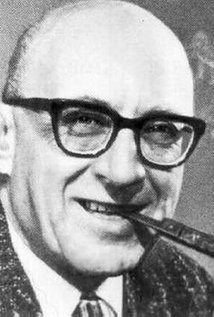Curt Siodmak (Kurt Siodmak)

Curt Siodmak was born Kurt Siodmak in Dresden, Germany, the son of Rosa Philippine (née Blum) and Ignatz Siodmak. His parents were both from Jewish families in Leipzig. Siodmak acquired a degree in mathematics before beginning to write novels. He invested early royalties earned by his first books in the movie Menschen am Sonntag (1929) a documentary-style chronicle of the lives of four Berliners on a Sunday based on their own lives. The movie was co-directed by Curt Siodmak’s older brother Robert Siodmak and Edgar G. Ulmer, with a script by Billy Wilder in collaboration with Fred Zinneman and cameraman Eugen Schüfftan. Siodmak was the nephew of film producer Seymour Nebenzal, who funded Menschen am Sonntag with funds borrowed from his father, Heinrich Nebenzahl. In the following years Siodmak wrote many novels, screenplays, and short stories including the novel F.P.1 antwortet nicht (F.P.1 Doesn’t Answer) (1932) which was adapted into a film featuring Hans Albers and Peter Lorre. Curt Siodmak decided to emigrate after hearing an anti-Semitic tirade by the Nazi propaganda minister Joseph Goebbels, and departed for England where he made a living as a screenwriter before moving to the United States in 1937. His big break in Hollywood came with the screenplay for The Wolf Man (1941), starring Lon Chaney, Jr., which established this fictional creature as the most popular movie monster after Dracula and Frankenstein’s monster.
Siodmak’s science-fiction novel Donovan’s Brain (1942) was a bestseller that was translated into many languages and was adapted for the cinema several times, beginning in 1943 with The Lady and the Monster, then 1953’s Donovan’s Brain and 1962’s The Brain. Other films he wrote the screenplays for include Earth vs. the Flying Saucers, I Walked With a Zombie and The Beast With Five Fingers. An extensive interview with Siodmak about his career in both Germany and Hollywood is found in Eric Leif Davin’s Pioneers of Wonder. In the plots of his work, Siodmak utilised the latest scientific findings combining those with pseudo-scientific motifs like the Jekyll and Hyde complex, the Nazi trauma and the East-West dichotomy. In 1998, he won the Berlinale Camera at the 48th Berlin International Film Festival. Curt Siodmak died in his sleep on September 2, 2000, at his home in Three Rivers, California.
Born
- August, 10, 1902
- Dresden, Germany
Died
- September, 02, 2000
- USA
- Three Rivers, California
Cause of Death
- natural causes



